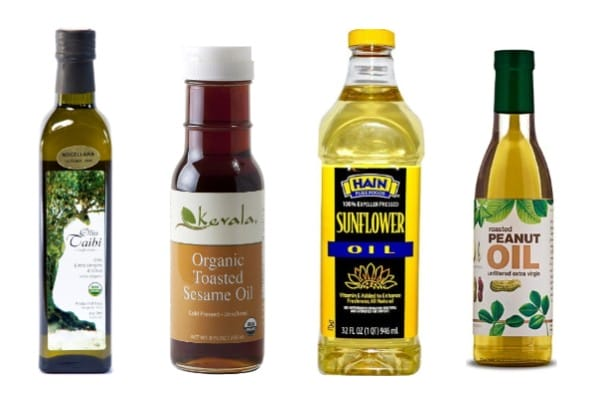Plant-based oils have emerged as essential components of a health-conscious diet, offering a myriad of benefits that can significantly influence longevity. A recent study highlights how substituting butter with these healthier oils, such as olive, canola, and soybean oil, can reduce the risk of premature death by a remarkable 17%. The research, backed by data from over 200,000 individuals, emphasizes the importance of unsaturated fats found in plant oils, which are linked to lower mortality rates from cancer and cardiovascular diseases. By making simple dietary swaps and reducing saturated fats from sources like butter, individuals can promote better health outcomes and potentially lengthen their lives. Incorporating plant-based oils into everyday meals not only enhances flavor but also aligns with modern nutrition’s focus on longevity and health benefits associated with plant oils.
Exploring the realm of vegetable oils presents a groundbreaking opportunity for enhancing dietary habits and overall wellness. Known for their heart-healthy properties, these oils serve as a favorable alternative to traditional animal fats like butter, significantly contributing to public health initiatives aimed at reducing chronic disease rates. Studies indicate that integrating these liquid fats, rich in unsaturated fatty acids, might hold the key to preventing conditions like cancer while promoting longevity. As researchers continue to uncover the intricate links between dietary changes and health outcomes, the spotlight shines brightly on how simple ingredient substitutions can make a lasting impact on our lives. Embracing these oils not only revamps our nutritional intake but also encapsulates the essence of modern dietary practices focused on well-being.
The Health Benefits of Plant-Based Oils
Plant-based oils offer a plethora of health benefits that can significantly enhance overall well-being. In particular, oils such as olive, canola, and soybean are rich in unsaturated fats, which are known to be heart-healthy. These oils not only help reduce bad cholesterol levels but also increase the intake of essential fatty acids, which are crucial for maintaining optimal bodily functions. Research indicates that regular consumption of these oils is linked with a reduction in total mortality, cardiovascular diseases, and certain types of cancer, making them an essential part of a balanced diet.
Incorporating plant-based oils into your daily meals can lead to remarkable health outcomes. Studies show that participants who consumed a higher amount of these oils experienced a 17 percent lower risk of premature death compared to those who favored butter. Such findings highlight the importance of choosing healthier fats for cooking and dressing salads, promoting a dietary shift toward oils that not only enhance flavor but also support longevity and reduced disease risk.
Substituting Butter with Healthier Oils
Making a simple swap by replacing butter with plant-based oils can create a significant positive impact on health. For example, substituting just 10 grams of butter a day with an equivalent amount of soybean or olive oil is linked to lower cancer and overall mortality rates. This dietary change is not just a reduction in saturated fat intake; it’s a shift towards healthier unsaturated fats that are preferable for optimal heart health. The research encourages individuals to rethink their cooking practices, embracing oils that support not only flavor but also health.
Substituting butter with plant-based oils is a practical step that can be easily integrated into anyone’s lifestyle. Whether it’s using olive oil for sautéing vegetables or canola oil for baking, these oils can be versatile alternatives to butter. With the potential to reduce health risks associated with high saturated fat consumption, making such dietary swaps can be a small yet impactful change. This could effectively contribute to enhancing one’s longevity and reducing the risk of chronic diseases like cancer and heart disease.
Understanding Unsaturated Fats for Better Health
Unsaturated fats play a crucial role in a healthy diet, providing the body with essential nutrients while promoting better health outcomes. Unlike saturated fats found in butter, unsaturated fats from plant-based oils are linked with improved heart health and lower mortality rates. This makes choosing oils like olive and avocado a smart choice for those looking to improve their diets. Not only can they replace harmful fats, but they also contribute to the essential fatty acids that the body cannot produce on its own.
Consuming unsaturated fats is associated with numerous benefits, including reducing inflammation and lowering the risk of chronic diseases. By understanding the types of fats present in our diets, individuals can make more informed choices that support long-term health. Replacing saturated fats with unsaturated fats is a simple yet effective strategy to enhance overall health and promote longevity. Awareness of these dietary components empowers individuals to make better choices, paving the way for a healthier lifestyle.
Dietary Swaps for Longevity
Dietary swaps can serve as a powerful tool for enhancing longevity and reducing age-related health risks. The latest research illuminates the benefits of replacing butter with plant-based oils, suggesting that simple dietary modifications can lead to significant improvements in life expectancy. By focusing on healthier fats, individuals can make strides toward better heart health, lower cancer risk, and increased overall well-being. These diet changes don’t require drastic measures but rather a thoughtful approach to fat consumption.
Making conscious choices in dietary swaps is imperative for those seeking longevity. Incorporating plant-based oils into everyday meals provides not only flavor but also a wealth of health benefits associated with unsaturated fats. Simple actions like switching oils in cooking and salad dressings can lead to profound changes in health status over time. The idea is to integrate these healthier oils as staples in one’s diet while gradually decreasing intake of saturated fats, such as those in butter, to reap the maximum benefits.
The Impact of Plant Oils on Cancer Mortality
The relationship between dietary fats and cancer mortality has been a significant focus of recent research. Findings indicate that higher consumption of plant-based oils is correlated with decreased cancer mortality rates. These oils, rich in antioxidants and anti-inflammatory properties, provide a protective effect against various cancers. Consequently, by substituting butter with oils like soybean or olive, individuals may significantly lower their cancer-related health risks.
Understanding the dietary factors that contribute to cancer mortality can empower individuals to make informed choices. By opting for plant-based oils filled with unsaturated fats instead of butter, one can potentially mitigate cancer risks. The ongoing research offers hope, as it clearly illustrates that intentional dietary changes can pave the way for lower incidence rates and prolong healthier lives. Such impactful dietary strategies underscore the critical importance of nutrition in cancer prevention.
Emphasizing the Importance of Healthy Fats
Healthy fats, particularly those found in plant-based oils, are paramount for maintaining a balanced diet. They not only provide energy but are also essential for nutrient absorption and cell health. Incorporating these healthy fats into your meals can lead to better heart health and potentially lower the risk of chronic diseases. The choice between butter and plant-based oils exemplifies how small dietary decisions can significantly impact overall health.
Furthermore, understanding the role of dietary fats encourages individuals to opt for healthier alternatives. Research shows that using plant-based oils instead of butter helps manage body weight while reducing harmful cholesterol levels. This dietary shift is crucial for those aspiring to improve their health and longevity. The incorporation of healthy fats into daily nutrition fosters a holistic approach toward long-term wellness and chronic disease prevention.
Everyday Applications of Plant-Based Oils
Incorporating plant-based oils into daily meals can be simple and beneficial. These oils can be used in a variety of ways, from salad dressings to cooking methods like sautéing and frying. By making these oils a staple in one’s kitchen, individuals can enjoy enhanced flavors while reaping health benefits associated with unsaturated fats. Simple applications such as drizzling olive oil on vegetables before roasting or using canola oil in baking can significantly promote a healthier lifestyle.
Moreover, the versatility of plant-based oils makes them an easy dietary transition for many. They can simply substitute butter in recipes, making them an effective way to enjoy favorite foods while prioritizing health. This not only preserves flavor but also aligns with goals of reducing saturated fat intake. With an increasing awareness of the health benefits of plant-based oils, incorporating them daily can significantly aid in achieving a balanced and nutritious diet.
Exploring the Nutritional Profile of Plant-Based Oils
The nutritional profile of plant-based oils showcases their remarkable health properties. These oils are generally low in saturated fat and high in unsaturated fats, including omega-3 and omega-6 fatty acids. Such nutritional attributes are linked to improved heart health and overall body functioning. Understanding the rich composition of these oils highlights the nutritional advantages of making the switch from butter to healthier fat alternatives.
Moreover, the antioxidants present in many plant-based oils offer additional protective benefits. These compounds fight inflammation and combat oxidative stress, which are known contributors to various diseases. By integrating a variety of plant oils into the diet, individuals not only enrich their meals but also contribute positively to their health. This understanding further emphasizes the need for dietary education around the benefits of oils compared to traditional fats.
Public Health Implications of Dietary Swaps
The findings from recent studies emphasize the importance of dietary swaps on a public health level. By promoting the substitution of butter with plant-based oils, health professionals can advocate for nutrition strategies that significantly reduce disease prevalence and improve overall mortality rates. This research offers an opportunity to reevaluate dietary guidelines, shifting the focus toward heart-healthy oils that contribute to longevity.
Encouraging communities to adopt these dietary changes creates the potential for broader health benefits across populations. Public initiatives could increase awareness around the advantages of replacing saturated fats with unsaturated alternatives, thus fostering healthier eating habits. This, in turn, can lead to reductions in healthcare costs associated with chronic diseases, underscoring the need for proactive dietary education in addressing public health challenges.
Frequently Asked Questions
What are the health benefits of plant-based oils compared to butter?
Plant-based oils such as olive, canola, and soybean oil offer significant health benefits over butter. Research indicates that substituting butter with these oils can lower the risk of premature death by up to 17% due to their higher unsaturated fat content, which is linked to reduced mortality from cancer and cardiovascular diseases. By making such dietary swaps, individuals can enhance their long-term health outcomes.
How can substituting butter with plant-based oils improve longevity?
Substituting butter with plant-based oils is associated with increased longevity. A study highlighted that incorporating these oils daily can lead to a 17% lower risk of total mortality, particularly from cancer. This is attributed to the unsaturated fats found in oils, which are healthier alternatives to the saturated fats in butter and contribute positively to overall health.
What types of plant-based oils should I use to reduce cancer mortality?
To reduce cancer mortality, consider using plant-based oils such as olive oil, soybean oil, and canola oil in your diet. These oils contain unsaturated fats and beneficial nutrients that can lower the risk of certain cancers. Replacing butter with these oils in your cooking and dressings can significantly improve your health outcomes.
Are dietary swaps to plant-based oils effective for lowering chronic disease risk?
Yes, dietary swaps to plant-based oils are effective for lowering the risk of chronic diseases. Studies demonstrate that substituting butter with oils high in unsaturated fats can reduce mortality rates, particularly from cancer and heart disease. Implementing these changes can lead to meaningful long-term health benefits.
What is the best way to incorporate plant-based oils into my diet?
The best way to incorporate plant-based oils into your diet is by using them in cooking methods such as sautéing, frying, and salad dressings. Replace butter with oils like olive, canola, or soybean oil as a part of your daily meals to enjoy the associated health benefits, including lower risks of cancer and cardiovascular diseases.
| Key Point | Details |
|---|---|
| Study Findings | Replacing butter with plant-based oils can reduce premature death risk by 17%. |
| Participant Data | Data from over 200,000 participants followed for more than 30 years. |
| Oils Analyzed | Soybean, canola, and olive oil linked to lower mortality. |
| Butter Risks | Higher consumption of butter associated with increased cancer and total mortality. |
| Daily Intake | Substituting 10 grams of butter with plant oils significantly lowers cancer deaths. |
| Public Health Implications | Simple dietary swaps could prevent substantial numbers of deaths from chronic diseases. |
| Research Support | Study received funding from the National Institutes of Health. |
Summary
Plant-based oils are emerging as a powerful alternative for improving health and longevity. Research has shown that by substituting butter with plant-based oils, individuals can significantly reduce their risk of premature death. This study highlights the importance of dietary choices, particularly the benefits of incorporating oils like soybean, canola, and olive oil into our daily meals. Not only does this simple modification in our diet promote better health, but it also has the potential to lower mortality rates associated with chronic diseases. Therefore, choosing plant-based oils over butter could be a pivotal step towards enhancing our overall well-being.









